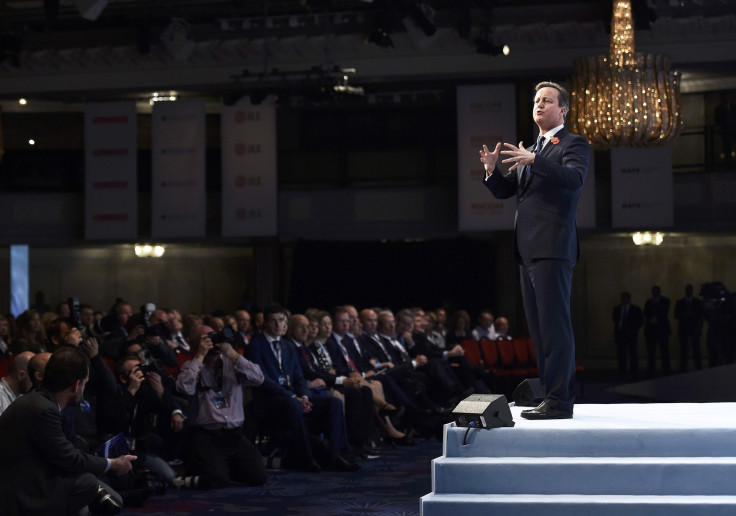British RAF Tornado Fighter Jets Carry Out Airstrikes In Syria, Hours After Parliament Voted For Military Operations Against ISIS

UPDATE: 3:13 a.m. EST -- Britain’s defense ministry confirmed Thursday that Royal Air Force launched airstrikes against the Islamic State group targets in Syria’s Omar oil field in eastern Deir Ezzor city. The ministry added that Britain was doubling the size of bombers against ISIS by sending two Tornado and six Typhoon fighter jets.
Original story:
Britain launched airstrikes in Syria hours after its parliament voted in favor of an aerial campaign against the Islamic State group in the Middle Eastern country, the Associated Press (AP) reported late Wednesday. RAF Tornado bombers have been carrying out an air campaign in Iraq against ISIS since September 2014 from an airbase in Cyprus.
Soon after the vote, four Royal Air Force (RAF) Tornado jets reportedly took off from the Cyprus airbase. A Ministry of Defense spokesman reportedly confirmed the launching of airstrikes and said that further details on the targets would be disclosed Thursday.
The planes had returned from their "first offensive operation over Syria and have conducted strikes," the spokesman said, according to Agence France-Presse.
Lawmakers voted 397-223 Wednesday in favor of military operations against the Sunni militant group after a 10-hour debate.
British Prime Minister David Cameron held a private meeting late Tuesday evening and urged his Conservative Party to vote for the airstrikes. He also called those opposing the air campaign a "terrorist sympathizer" and refused to apologize for the remark that angered many ranking politicians.
Labor Party leader Jeremy Corbyn, who led the opposition to the airstrikes in Syria, had previously called the notion of Britain’s participation in the U.S.-led coalition to carry out airstrikes in Syria as "reckless and half-baked intervention."
© Copyright IBTimes 2025. All rights reserved.






















